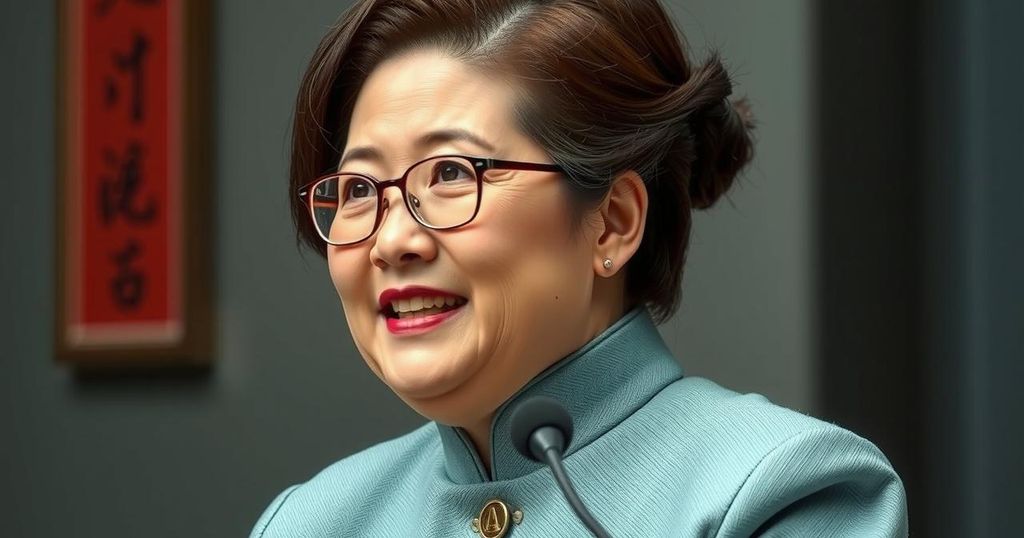Outrage Over Professor’s Remarks on Women’s Childbearing Roles in China
Chinese Professor Wang Xianju has faced backlash for asking how to encourage Chinese women to have children obediently, drawing comparisons to Kazakhstan’s higher birth rates. His remarks, made during a think tank discussion, highlighted the cultural differences regarding fertility and sparked outrage, leading to the removal of the original publication.
Professor Wang Xianju of China has elicited widespread outrage following his comments regarding fertility practices, particularly concerning women in China. During a think tank event hosted by the Chongyang Institute for Financial Studies, Professor Wang expressed his astonishment at the high birth rates in Kazakhstan, noting that women there seem to have children shortly after graduation. He inquired how such obedient behavior could be replicated among Chinese women, who he suggested are resistant to early marriage and childbearing. His remarks sparked a public backlash, leading to the deletion of the article detailing his comments from the institute’s WeChat account.
The topic of fertility and demographic challenges is of significant concern to many countries, including China which currently faces a declining birth rate. Following decades of strict population control measures, such as the one-child policy, societal attitudes towards marriage and childbirth have shifted, with many women prioritizing education and career goals over traditional family roles. In contrast, Kazakhstan appears to have developed successful policies that promote higher birth rates, presenting a stark comparison to China’s current demographic issues. This backdrop has intensified the controversy surrounding Professor Wang’s remarks and the implications they carry for women’s autonomy.
In summary, Professor Wang Xianju’s comments have ignited a heated debate about the role of women in society, particularly regarding fertility and family planning. His inquiry into how to encourage Chinese women to have children obediently showcases significant cultural and social challenges. The reaction to his remarks reflects broader concerns about the implications of demographic policies and the respect for women’s choices in family planning, pressing issues that warrant serious discussion and reflection.
Original Source: www.scmp.com








Post Comment